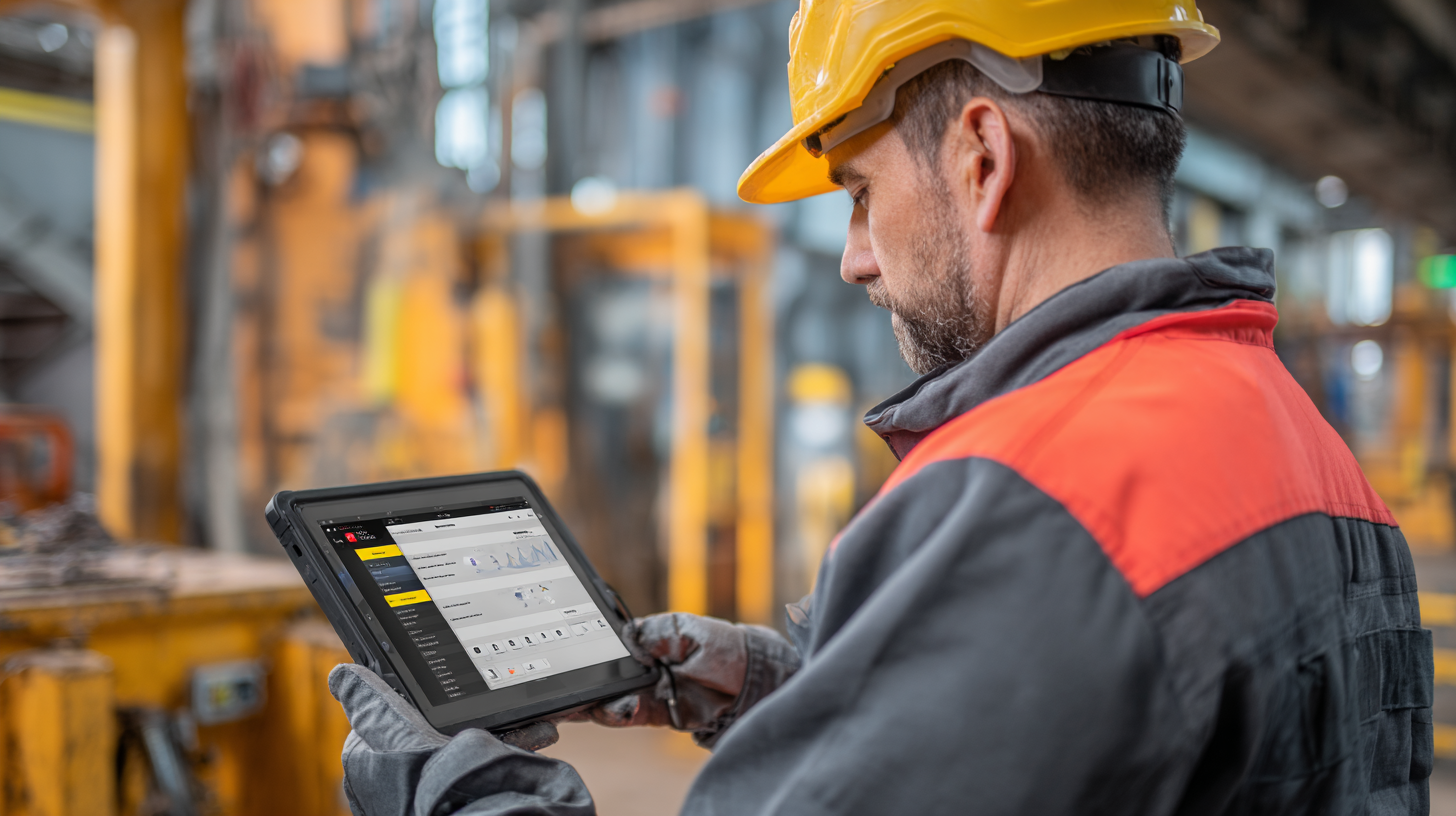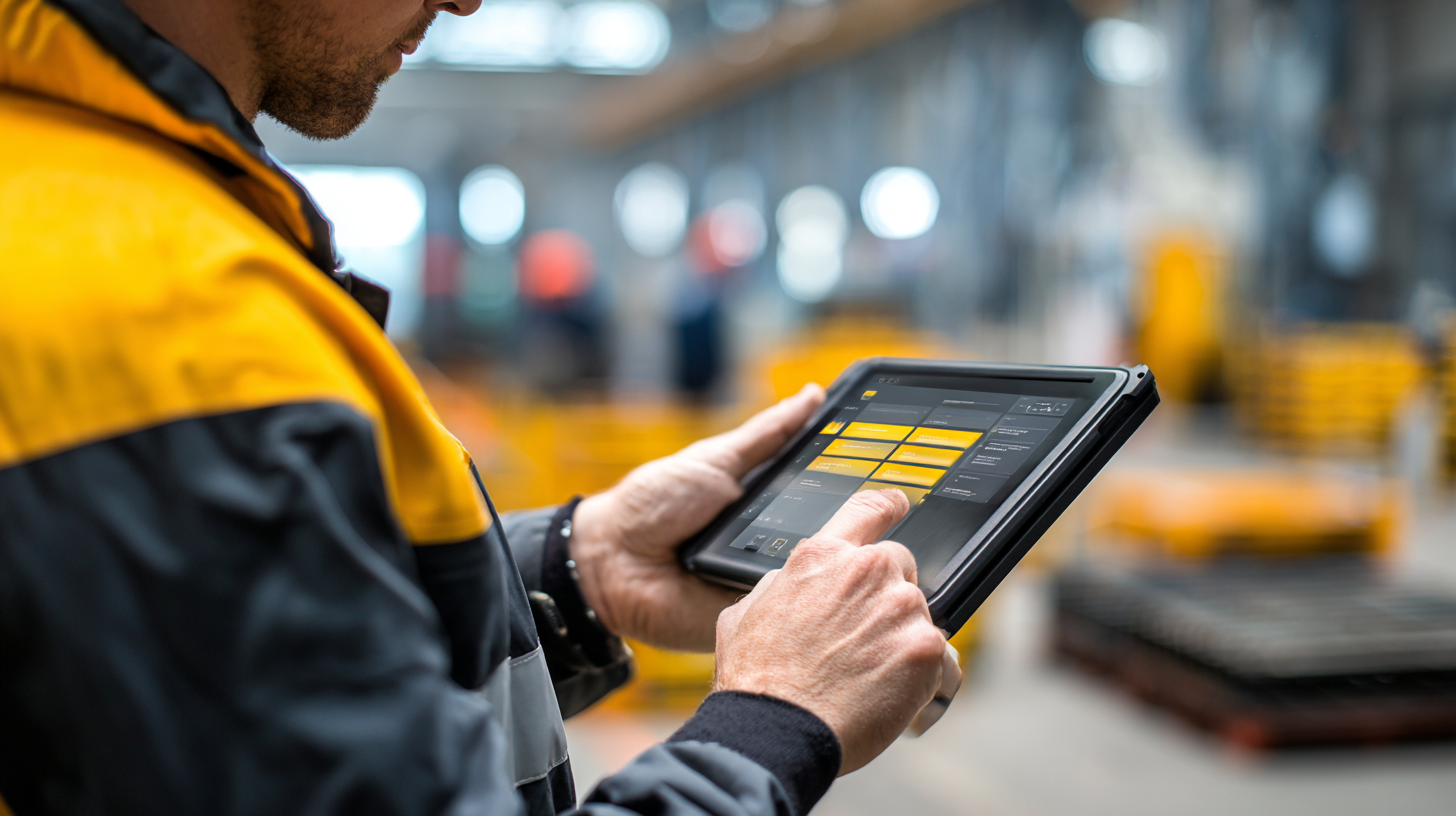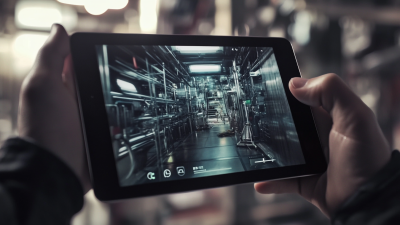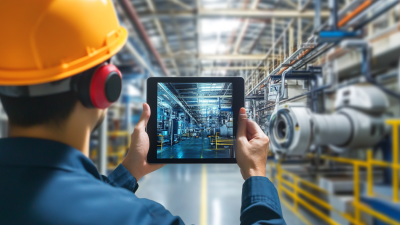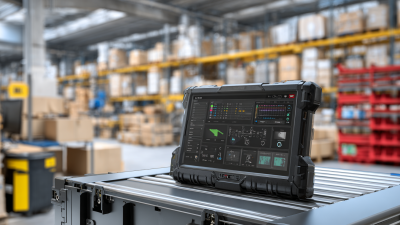Revolutionizing Industrial Workflows with the Power of Android Industrial Tablets
In an era where efficiency and precision are paramount in industrial environments, the integration of technology is transforming traditional workflows. One such technological advancement is the Android Industrial Tablet, a tool that is revolutionizing the way industries operate. These robust devices not only offer the versatility of traditional tablets but are also designed to withstand the rigors of industrial settings.
With features like enhanced durability, specialized applications, and seamless connectivity, Android Industrial Tablets empower workers to streamline processes and improve productivity. This introduction explores the myriad benefits of adopting Android Industrial Tablets in industrial workflows, highlighting their potential to reduce operational costs, facilitate real-time data access, and enhance overall workforce efficiency.
As businesses seek innovative solutions to address the challenges of modern manufacturing and production, understanding the role of Android Industrial Tablets becomes essential for staying competitive in a rapidly evolving landscape.
Understanding Android Industrial Tablets and Their Impact on Modern Workflows
Android industrial tablets are transforming modern workflows by integrating advanced technology into daily operations. These devices are designed to withstand the rigors of industrial environments while offering powerful features that enhance productivity. With intuitive interfaces, robust applications, and connectivity options, Android tablets streamline processes, enabling workers to access real-time data and collaborate seamlessly. This integration leads to faster decision-making and increased efficiency on the shop floor.
Tips for maximizing the impact of Android industrial tablets in your workflows include custom app development tailored to your specific needs. By creating specialized applications, companies can address unique challenges within their operations, ensuring that employees have the right tools at their fingertips. Additionally, investing in training programs will empower staff to fully leverage the capabilities of these devices, leading to a more proficient and engaged workforce.
Moreover, consider implementing rugged tablet models that can endure harsh conditions. Look for devices that offer features like waterproofing, drop resistance, and long battery life, ensuring that your investment will last in demanding environments. By adopting Android industrial tablets, businesses not only optimize their workflows but also foster a culture of innovation and adaptability in an ever-evolving industrial landscape.
Revolutionizing Industrial Workflows with the Power of Android Industrial Tablets
| Feature |
Description |
Impact on Workflows |
| Durability |
Rugged design for harsh environments |
Reduces downtime and maintenance costs |
| Mobility |
Lightweight and portable |
Enhances on-site productivity and flexibility |
| Touchscreen Interface |
Intuitive and easy to use |
Reduces training time for new users |
| Connectivity Options |
Wi-Fi, Bluetooth, and cellular technology |
Enables real-time data access and remote communication |
| Battery Life |
Long-lasting battery for extended use |
Minimizes interruptions for greater efficiency |
| Security Features |
Advanced encryption and user permissions |
Protects sensitive data and company information |
Key Features of Android Industrial Tablets That Enhance Efficiency
Android industrial tablets are redefining efficiency in various industrial workflows through their innovative features tailored for demanding environments. One of the key benefits is their robust design, which often includes rugged casings and screens that resist water, dust, and impacts. This durability ensures that devices can withstand the tough conditions found in factories, warehouses, and construction sites, reducing downtime and maintenance costs.
Additionally, the integration of powerful Android operating systems allows industrial tablets to support a wide range of applications that streamline processes. Features such as real-time data access, cloud connectivity, and intuitive user interfaces enable workers to manage tasks more effectively. Voice recognition and barcode scanning functionality further enhance productivity, allowing for hands-free operation and rapid inventory management. With these capabilities, Android industrial tablets are not just tools; they are transformative assets that optimize operational workflows and drive efficiency across various industries.
Step-by-Step Guide to Integrating Android Tablets into Your Workflow
Integrating Android tablets into your industrial workflow can significantly enhance productivity and efficiency. These devices are designed to be versatile, making them ideal for various applications in industrial settings. With a step-by-step approach, you can seamlessly incorporate these tablets into your operations, allowing for real-time data access and easier communication among team members.
Tips for Integration:
Start by identifying the specific tasks that can benefit from tablet usage, such as inventory management or quality control. Ensure that your software is compatible with Android devices and consider training your staff on the new tools available at their fingertips. Taking advantage of the latest AI features can also provide immersive experiences that streamline your workflows, making everyday processes more intuitive and effective.
As you integrate, don’t overlook the importance of accessories like styluses, which can facilitate note-taking and design work. By choosing the right tablets tailored to your needs, along with the necessary tools, you will create a modern workspace that significantly improves collaboration and output.
Best Practices for Utilizing Android Tablets in Industrial Environments
The integration of Android tablets in industrial environments is transforming workflows by enhancing efficiency, accuracy, and communication. One of the best practices is ensuring that tablets are equipped with rugged cases to withstand harsh conditions such as dust, moisture, and impacts. These durable designs not only protect the devices but also ensure their longevity, which is crucial in settings where equipment often faces extreme challenges.
Another effective practice involves customizing applications to suit specific industrial needs. By leveraging industry-specific software, companies can streamline processes such as inventory management, equipment monitoring, and real-time data analysis. This customization fosters a more intuitive user experience, enabling workers to access the tools they need quickly and effectively. Training employees on these applications is essential, as a well-informed workforce can harness the full potential of the technology, resulting in improved productivity and reduced downtime.
Revolutionizing Industrial Workflows with Android Tablets
This chart illustrates the efficiency improvement percentages achieved in various industrial workflow areas after implementing Android tablets. The data indicates significant enhancements in data entry and inventory management, showcasing the impact of mobile technology in industrial environments.
Case Studies: Successful Implementations of Android Tablets in Industry
The integration of Android industrial tablets into various workflows has proven transformative across multiple sectors. Numerous case studies highlight their successful implementation in industries facing operational challenges. For instance, companies have utilized Android tablets to streamline supply chain management and enhance productivity. The intuitive interface of these devices facilitates real-time data access and communication, allowing workers to efficiently manage tasks on-the-go.
In retail, where the landscape is rapidly evolving, organizations are leveraging Android tablets as part of their strategy to improve customer engagement and operational efficiency. By deploying mobile devices, retailers have improved their inventory management and personalized customer interactions, which are crucial in addressing the complexities of modern shopping experiences. Additionally, in distribution management, companies have recognized the need for advanced tracking systems that allow distributors to optimize delivery routes and monitor performance effectively. The adaptability of Android tablets makes them an ideal solution for navigating and overcoming these current challenges in the industrial sector.
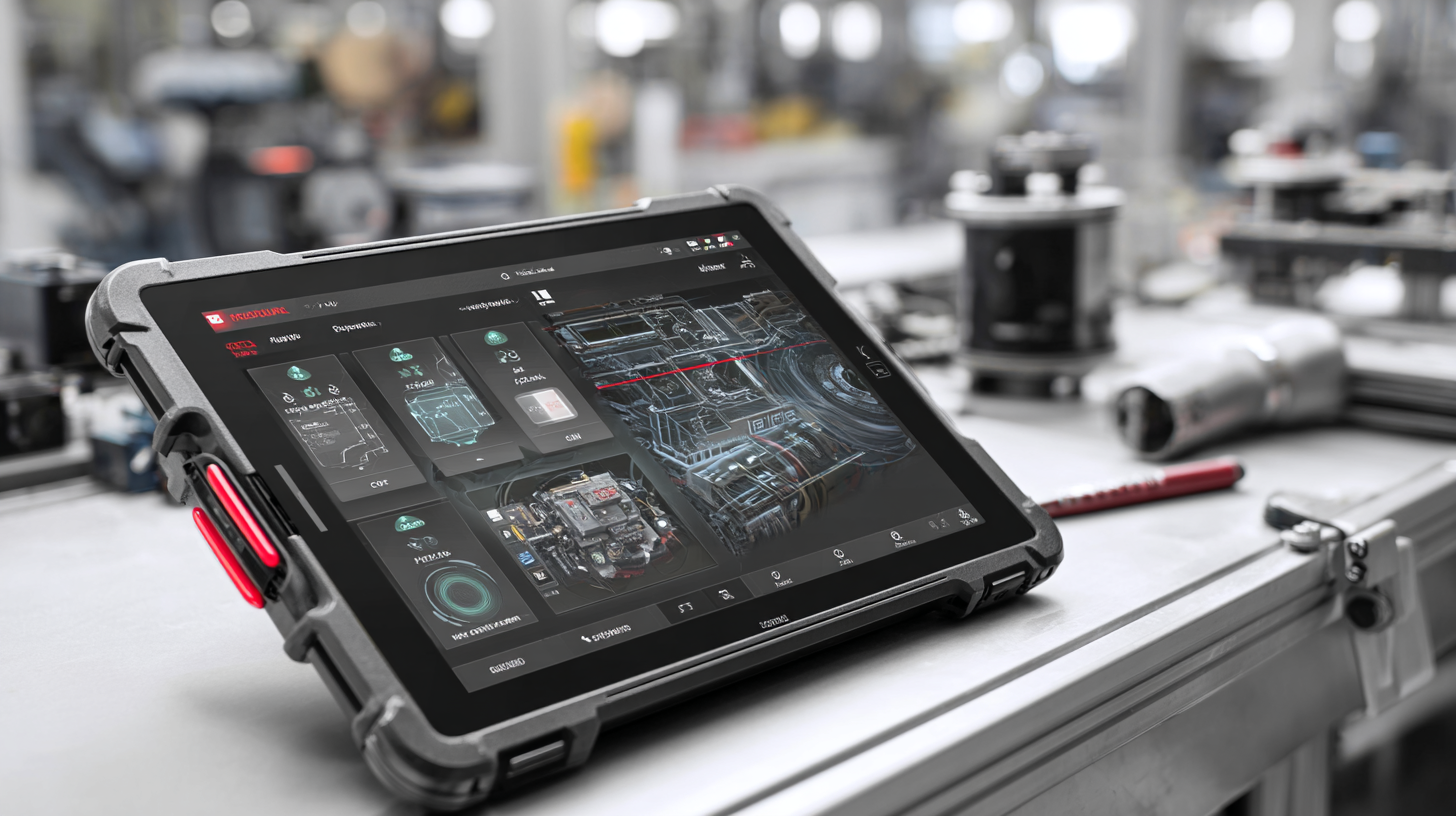

Home
Products
Solutions
MDM Software
OEM/ODM
About Us
About 3Rtablet
Quality Control
Contact Us
News
New Product Launch: 3R Rugged Tablet PC: AT-10AL—Powerful Customization with Yocto System
3Rtablet: Enhancing Your Off-Road Adventures,Your Ultimate Off-Road Companion
3Rtablet: Powering Productivity in Construction and Agriculture
Choosing Your Ideal Linux Rugged Tablet: Why Opt for Yocto?
Choosing Your Ideal Linux Rugged Tablet: Why Opt for Debian?
Yocto VS Debian - Choosing Between Yocto and Debian
GMS Certified Android Device: Ensuring Compatibility, Security and Rich Functions
New Arrivals: Rugged Android 12.0 or Linux Yocto OS Vehicle Telematics Box for Vehicle Applications in Various Sectors
Rugged Tablet For Taxi Dispatch
Rugged Driver Tablets Revolutionize Safety and Efficiency in Mining Operations
Rugged In-Vehicle Tablets Power the Growth of IoT Revolution in Modern Industries
VT-7A PRO: New Android 13 Rugged Vehicle Tablet with GMS Certification
Taxi Dispatch Rugged Vehicle Tablet: Taximeter Ruggedized Car Tablet PC with CANBUS MDT Terminal Is Bound to Make an Impact in Your Business
Sick and Tired of Doing Fleet Management the Old Way? Read This! Discover Smarter Solutions with MDT Terminals, Rugged Vehicle Tablets, MDM Platforms, and More
Global Memory Supply Faces Severe Disruptions Amid AI-Driven Demand Surge
Public Transportation Transformation Accelerates: Rugged Tablets Become the Brain of the Smart Bus
Smart Anti-Collision System Unveiled: Rugged Tablet Integrates Advanced Al Pedestrian Detection Reversing Camera Technology
Driving Forward Together | Merry Christmas from 3Rtablet
Experience Durability: How 3Rtablet Redefines the Standards of a China Leading 7 Inch Tablet Rugged Factory
A Comprehensive Buyer’s Guide to Selecting a China Leading IP67 Rugged Devices Supplier
FAQs
 AT-10A
AT-10A AT-10AL
AT-10AL VT-7 GA/GE
VT-7 GA/GE VT-7 Pro
VT-7 Pro VT-7 PRO (AHD)
VT-7 PRO (AHD) VT-7A
VT-7A VT-7AL
VT-7AL VT-10
VT-10 VT-10 IMX
VT-10 IMX VT-10 Pro
VT-10 Pro VT-10 Pro AHD
VT-10 Pro AHD VT-7
VT-7 VT-7A PRO
VT-7A PRO VT-10A Pro
VT-10A Pro ST-7 Rugged Table
ST-7 Rugged Table VT-5A
VT-5A VT-5
VT-5 VT-BOX
VT-BOX VT-BOX-II
VT-BOX-II AI-MDVR040
AI-MDVR040 AT-B2
AT-B2 AT-R2
AT-R2